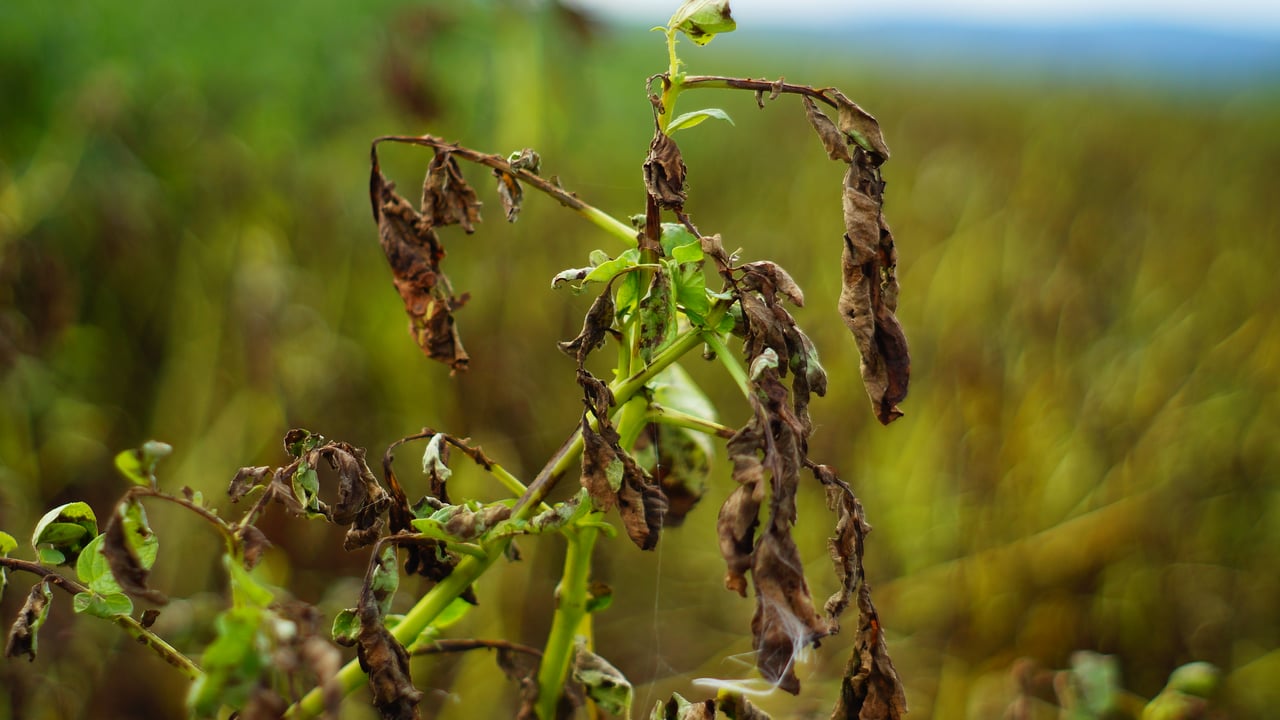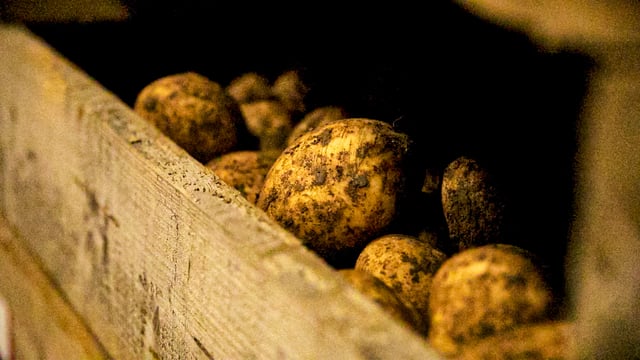Weather conditions remain conducive to blight attack
The current changeable weather is conducive to blight attack, according to Teagasc potato specialist, Shay Phelan.
“The high levels of humidity are also adding to the blight pressure,” he told Agriland.
“But, for the most part, growers are staying on top of the problem.”
However, August brings specific challenges, where the management of blight is concerned.
“August tends to be one of the wettest months of the year. It also coincides with the main push to get the spring cereal harvest over the line," Phelan continued.
“As a consequence, potato growers may find themselves busy on a number of fronts. And, as a result, the timing of some blight sprays can be missed or fields may not be covered as effectively as they should be.
“In recent weeks, we have seen plenty of blight in crops especially where timings have been missed or shortcuts have been taken," he added.
Almost all growers are following a defined programme this year due to the risk of EU43 becoming established in crops.
"Thankfully, there seems to be little of EU43 found in the population so far this year so the programmes seem to be working," Phelan said.
Meanwhile, Teagasc is hosting a blight trials open day at Oak Park, Co. Carlow on Thursday, August 29. It will take place between 2:00p.m and 4:00p.m.
This has become an annual event with Teagasc’s Dr. Steven Kildea and Shay Phelan in attendance to discuss the specific strains of the disease that are impacting on Irish potato crops this year and the response generated by those potato fungicides currently available.
The threat of the EU43 strain to Irish potato crops has been consistently highlighted over the past 12 months.
Teagasc is asking potato growers to be on the lookout for the disease within their crops that does not seem to be controlled by applied fungicides.
“We are also in contact with amateur potato growers on this issue. Samples of leaves containing the blight fungus are already being sent to Teagasc Oak Park," Phelan continued.
“This is allowing scientists to identify the variants of blight that are active in Ireland at the present time. And we are asking that growers should continue to supply infected crop material for analysis.”
EU43 is a particularly virulent form of blight, which has shown resistance to most of the fungicide chemistries currently available.
“It is vitally important for potato growers to maintain their blight control strategies in full. And this means using combinations of all the blight chemistries currently available in the most effective manner possible," Phelan explained.
EU43 did tremendous damage to potato crops in Denmark in 2022 and was equally impactful in the Netherlands last year.
Isolates of the blight genotype were identified in potato crops growing at Teagasc Oak Park last autumn.





